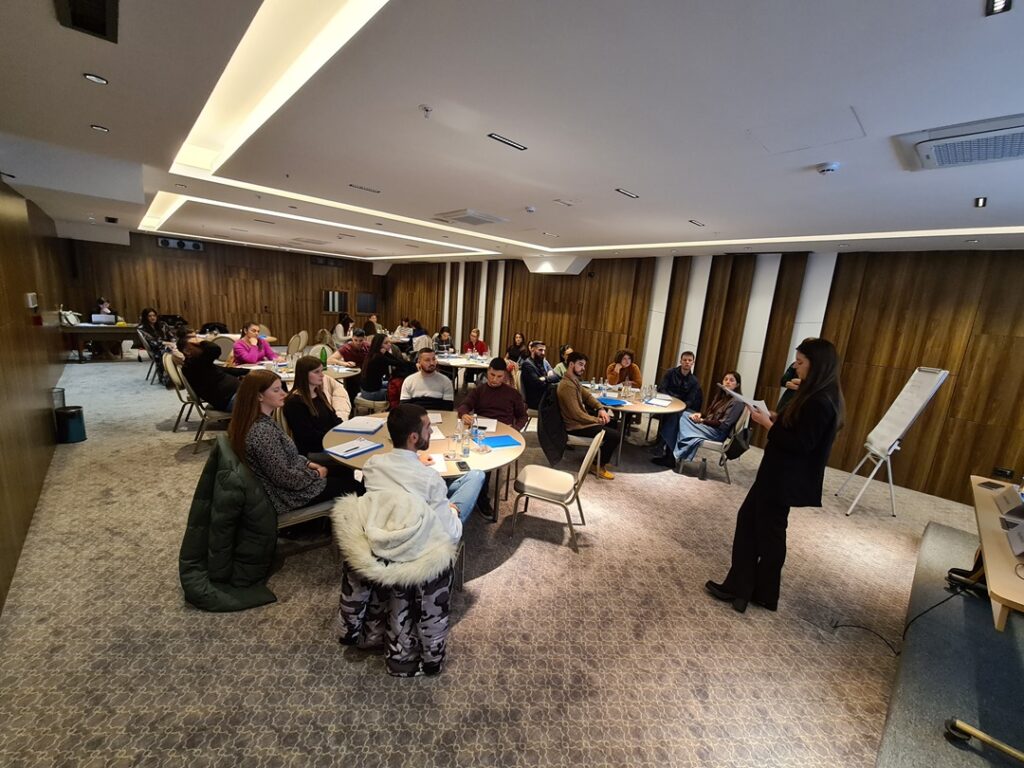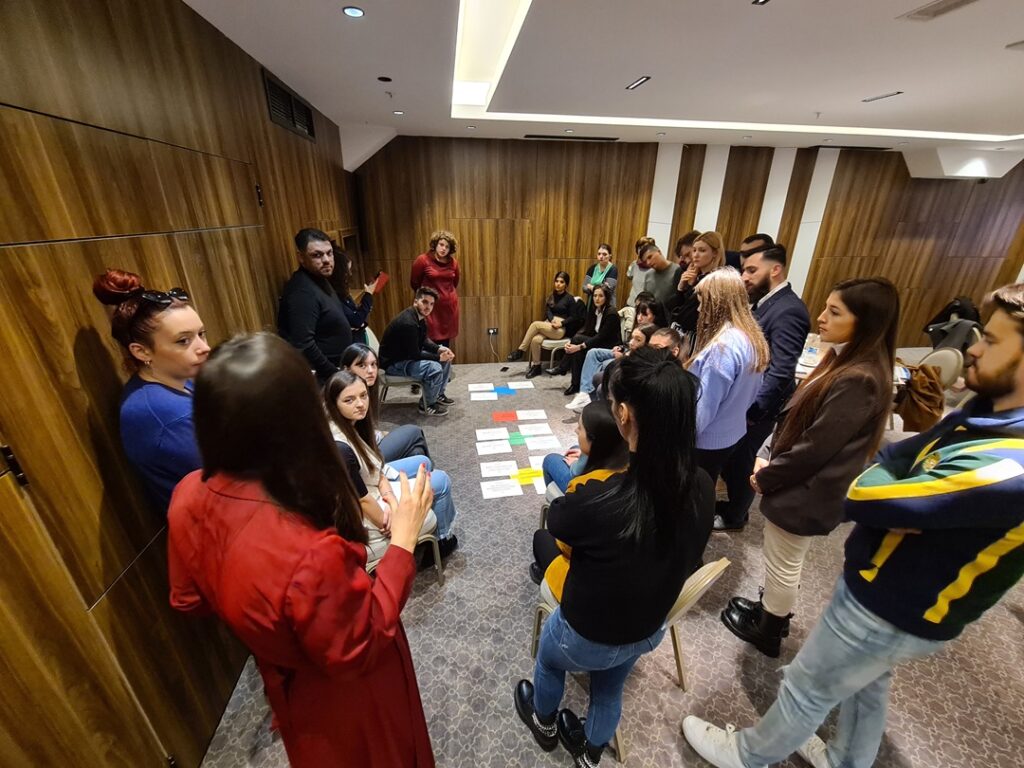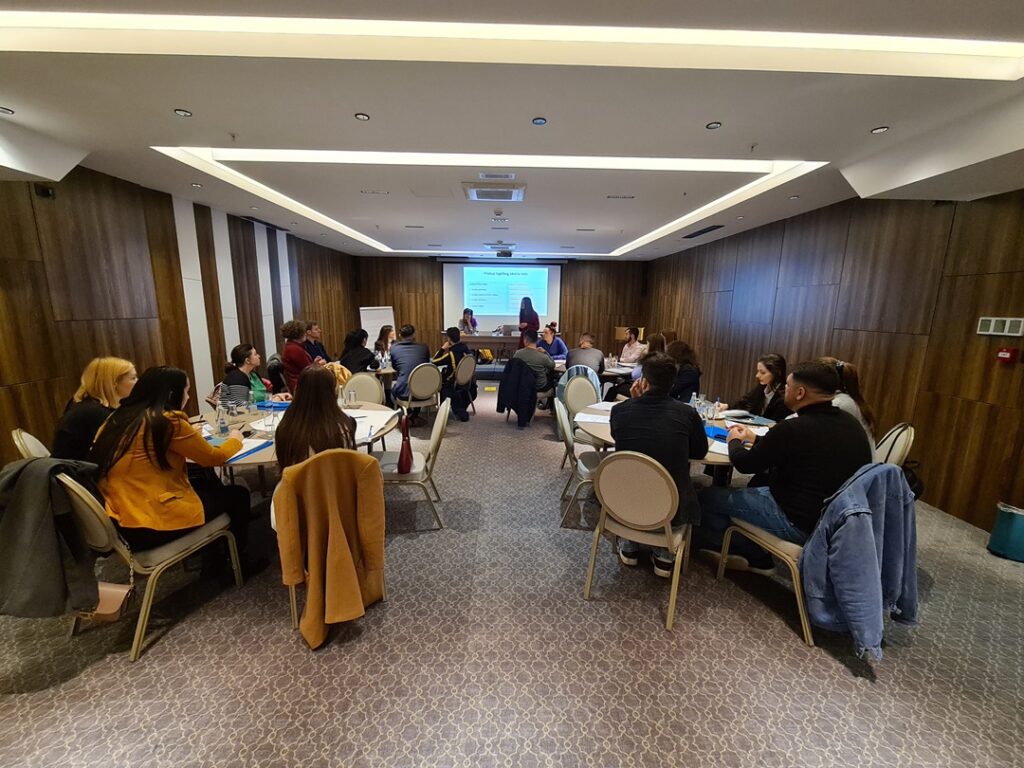Centre for Civic Education (CCE) organized the second module of the capacity-building programme for youth on project cycle management from 26 to 28 December in Podgorica. This programme is part of the YouthJobLink project – linking youth and social enterprises, implemented by CCE with the support of the European Union through the Directorate for Finance and Contracting of EU Assistance Funds (CFCU) of the Ministry of Finance of the Government of Montenegro. The goal is to enhance the competitiveness of youth in the labour market and improve their employability. The programme includes three modules, followed by the employment of ten selected young people for six months.
Project cycle management involves skills in identifying social issues and striving to address them through a structured approach that allows for a comprehensive analysis of the context, problems, and the design of activities that will contribute to solving the problems. The intensive three-day training encouraged young people to think analytically, logically, and in the public interest, equipping them to use the project cycle as a way to contribute to overall societal development and ultimately improve their employability. It has been shown that a large number of employers in Montenegro value project writing and implementation skills.
“Project cycle management skills are useful for all young people who have the need to contribute to change, regardless of the field of activity. They help them approach problems analytically and design projects based on real, not assumed, needs of target groups,” said Marina Vuković, one of the trainers. “On the other hand, analytical thinking skills, problem-solving, and general project management have been at the forefront of the most sought-after business skills globally for years, and it seems that their importance is increasingly coming to the fore in Montenegro,” concluded Vuković.
“During the training, young people showed a high level of interest and dedication to work because they recognized project writing as an important skill that can help them in both their professional and personal lives. Separating the causes from the consequences of the problem, setting clear goals and appropriate actions were recognized as the path to necessary changes,” emphasized Lidija Brnović, one of the trainers, assessing the youth’s interest in the project cycle.
“I believe that training of this format, where practical work is done on a specific problem, gives young people the opportunity to acquire practical skills that are crucial and will undoubtedly be beneficial in the process of transitioning to the labor market. Especially when we consider formal education where the focus is more on theory, and we do not have the opportunity to learn such skills, such as project writing, at university,” said Serđan Baftijari, a thirty-one-year-old participant from Podgorica. “I hope that this practice will continue, and that other young people will have the opportunity to participate in similar training,” Baftijari added.
“Since I had not had the opportunity to familiarize myself with project cycle management before, this was very useful for me to improve my chances of finding a job in the future,” said Iva Vukotić, a twenty-four-year-old participant from Herceg Novi. “I think these are important skills that can increase our value in the job market, but also help us demonstrate on future jobs that we are capable of solving problems and contributing to concrete projects,” Vukotić concluded.
Željka Ćetković, Active Citizenship Programme Coordinator



